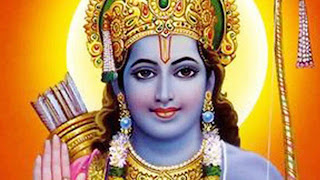The clash of civilizations updated.
Thirty years ago Samuel Huntington predicted that in the post-Cold War world the clash of ideologies would be replaced by a clash of civilizations, the civilizations concerned being based on religion. He got a few things wrong -- he assumed that the fundamental religion of the West would be Roman Catholic, but it has turned out to be Secular Humanism. In most other respects, however, his scenario in The Clash of Civilizations and the remaking of world order has played out in subsequent history.
One example of this is the rise of Hindutva in India, which is remolding Hinduism for political purposes: Why Hinduism Is Being Molded Into A Monotheistic Religion Like Islam And Christianity
The political, cultural and religious symbolism of the occasion, as well as its timing in conjunction with the Hindu festival of lights, Deeputsav, were not lost on the people of India. The event was part of an ongoing, all-encompassing effort to craft and sustain a larger Hindu identity across its diverse traditions and forge Hinduism into a structured faith with Ram as its principal divinity.<Although Ram is one of the most familiar deities in Hinduism, he is not a central figure in all of its various strains, where different deities are worshipped. However, Hindutva — the reigning political ideology of the far-right government led by Modi, which took power in 2014 — has been systematically working to organize Hinduism along the lines of monotheistic religions such as Judaism, Christianity and Islam. Hinduism is otherwise more of a diverse way of life than a formal faith.
Another example is the rise of the Russki Mir doctrine in Russia, and Poroshenko's nationalistic Orthodox Church of Ukraine, which are having a similar effect on Orthodox Christianity. These parallel older movements that have a similar relation to other religions -- Zionism in relation to Judaism and Islamism in the case of Islam.
I think it would be a pity in some ways if Hinduism went monotheistic. One of the things that made it interesting has been its polytheism, or at least the polytheism of certain branches of Hinduism; some bracnhes, like Advaita Vedanta, have tended to monism, which I find much lass attractive. But it doesn't seem as though Modi is going for that.It's not that I myself want to worship Hindu deities -- that is forbidden to Christians -- but within a Christian worldview such deities can be seen as angels, created gods ontologically different from the creator, but nevertheless among the "things invisible" created by God.





